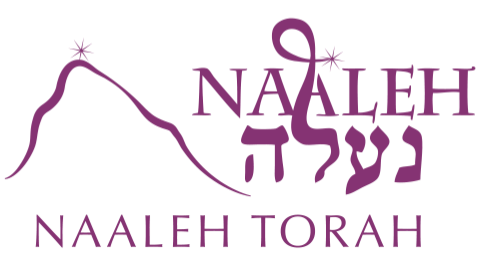Category: Understanding Prophecy
The Decree Of No Rain
Posted onIntroduction
Posted onPrerequisites for Prophesy
Posted onIn this Torah shiur (class) on prophesy, Rabbi Avishai David speaks about the prerequisites for prophesy.
Role of the Navi
Posted onIn this Torah shiur (class) on the nature of Prophesy, Rabbi Avishai David explains the various roles a Navi fills in society. The prophet must inspire and guide the people to correct wrongdoings and strengthen mitzvot and halachot that have weakened. The impact of the Navi is felt because of the force of his personality and charisma. However, this magnetism stems from his perfection of character and self-development.
Prophesy in Israel
Posted onIn this Torah class on Nevua, prophesy, Rabbi Avishai David discusses the centrality of the land of Israel to Jewish prophesy. All prophesies either took place in Eretz Yisrael or were about the Holy Land. Intersetingly, Rabbi David points out that the split between Yitzchak and Yishmael and Yaakov and Esav were both centered on ownership of Eretz Yisrael.
Idolatrous ‘Prophets’
Posted onIn this shiur (Torah class) on prophesy, Rabbi Avishai David delves into the Torah’s treatment of false prophets, the prophets for Ba’al, and sorcerers. Through a thorough study of various areas of Tanach, Rabbi David demonstrates that a big goal of true prophets was removing the influence and power of the false prophets and soothsayers.
Non-Jewish Prophets
Posted onIn this Torah class (shiur) on Nevua, Rabbi Avishai David discusses the question of whether a non-Jew can become a prophet.
Prophesies Regarding Other Nations
Posted onIn this Torah shiur (class) on the nature of prophesy, Rabbi Avishai David presents an overview of the many prophesies which were said regarding the nations of the world, and their messages for the Jewish people.
The Other Nations
Posted onIn this shiur (Torah class) on prophesy, Rabbi Avishai David explains the use of other nations as the tool with which to punish the Jewish people for their sins. This class also describes how the Neviim perceived their visions.
Prophetic Studies
Posted onIn this Torah class (shiur) on prophesy, Rabbi Avishai David describes the phenomenon of the ‘b’nei hanevi’im’, the student of the Neviim, who worked to try and attain the level of prophesy. Rabbi David also discusses the unique relationship of Eliyahu and Elisha, and ends with a description of the difficulties and challenges that prophets faced from the Jewish people.
Disciples of Neviim
Posted onIn this shiur (Torah class) on prophesy, Rabbi Avishai David discusses the process of studying under a Navi, and delves into the details of two famous Navi-Disciple relationships; Moshe Rabbenu with Yehoshua bin Nun, and Eliyahu Hanavi with Elisha Hanavi.
The Navi as Leader
Posted onIn this Torah class on the nature of prophesy, Rabbi Avishai David describes the various leadership roles presented in the Torah. The Jewish people are led by the Melech (king), the Sanhedrin (Supreme Court of Jewish Judges), the Cohen Gadol (High Priest), and by the Navi (prophet). This shiur focuses on the unique relationship and interaction between a Navi and Melech.
False Prophets
Posted onIn this Torah shiur (class) on prophesy, Rabbi Avishai David teaches the definition of a false prophet, based on Maimonides’ discussion in Mishneh Torah.
Clear Prophesy as a Sign of Heavenly Closeness
Posted onIn this Torah class (shiur) on prophesy, Rabbi Avishai David explains the fantastic clarity of the Revelation at Sinai, and uses this as the basis for understanding differences between clarity and style of various prophets throughout history. Yeshayahu prophesied at a time when Jerusalem was in her full glory, and therefore gave the brief and concise descriptions of one who is accustomed to G-dly revelations. In contrast, Yechezkel’s descriptions are lengthy, and both Yechezkel and Yirmiyahu were troubled by false prophets, as they both prophesied when the Shechina was leaving Jeruslaem and the destruction of the Temple was occurring.
Symbolic Acts: Vision or Reality?
Posted onIn this shiur (Torah class) on prophesy, Rabbi Avishai David outlines the disagreement between the Rambam and his contemporaries regarding symbolic acts that are related to a given prophesy.
The Prohibition of Shituf
Posted onIn this Torah shiur (class) on Nevua, prophesy, Rabbi Avishai David explains the roots of the desire for shituf, mixing worship of hashem with idol worship, and the roots of our prohibition from believing or participating in such practices.
Our Rise and Fall at Har Sinai
Posted onRabbi Avishai David describes the pure clarity in which the Jewish nation experienced Hashem during Matan Torah, and the unfortunate fall from this lofty level when the Jews departed from Sinai.
Har Sinai as the Foundation of Prophesy
Posted onIn this Torah class (shiur) on the nature of prophesy, Rabbi Avishai David shows the importance of the revelation at Sinai in the prophesy of Moshe Rabbenu and all future prophesies.
Moshe Rabbenu: Prophesy With No Barriers
Posted onIn this Torah shiur (class) on Prophesy, Rabbi Avishai David continues the fascinating topic of Moshe Rabbenu’s special level of prophesy, where his physicality did not present a barrier between him and Hashem.
The Unique Clarity of Moshe’s Prophesy
Posted onIn this Torah class shiur on the nature of prophesy, Rabbi Avishai David continues to explore the unique quality of Moshe Rabbenu’s prophesy. Only Moshe prophesied with the exact formulation of ‘zeh hadavar asher diber Hashem’, ‘this is the matter which Hashem spoke…’; Other prophets used the more general ‘ko amar Hashem’, ‘so said Hashem’.
Understanding Eldad and Medad’s Negative Prophesy
Posted onIn this shiur (Torah class) on the nature of Nevua, prophesy, Rabbi Avishai David carefully analyzes the episode of Eldad and Medad prophesizing negatively about Moshe Rabbenu, through the explanations of the Drashos HaRan.
Moshe Rabbenu and His Unique Prophesy
Posted onThe Twelve Levels of Nevua
Posted onIn this fascinating shiur on Nevua, prophesy, rabbi David lists and explains the twelve levels of prophesy as described by the Rambam in Moreh Nevuchim. These twelve levels fall into three categories: pre-Nevua, prophetic dreams, and prophetic visions. The prophesy of Moshe Rabbeinu is the highest level possible.
Varying Levels of Prophesy
Posted onIn this shiur (Torah class) on Prophesy, Rabbi Avishai David explains the Rambam’s declaration that there are many levels of nevua. Rabbi David discusses the differences between Neviim, the Prophetic books, and Ketuvim, the Scriptures, according to the early commentators (Rishonim) Radak, Abarbanel, and Meiri, as well as the approach of Rav Chaim Soloveitchik of Brisk.
Prophetic Actions
Posted onIn this Torah class (shiur) on Nevua, Prophesy, Rabbi Avishai David presents various views of the commentators on whether actions taken together with a prophesy were literally performed, or were prophetic visions. Rabbi David describes the opposing opinions of Ramban and the Rambam, and the Abarbanel’s compromise position.
Concrete Predictions
Posted onIn this shiur (Torah class) on the nature of Prophesy, nevua, Rabbi Avishai David surveys the many examples of prophesies which were delivered together with a concrete action, which served as a portent of the future.
Poal Dimyon: Making Predictions Concrete
Posted onIn this Torah shiur (class) on Nevua, Rabbi Avishai David explain the concept of poal dimyon, an action which makes a given prophesy stronger, and teaches the Ramban’s use of this concept to explain the relationship between the actions of the Avot and Jewish History.
Can a Prophesy Be Changed?
Posted onIn this Torah shiur on the nature of prophesy, Rabbi Avishai David surveys various places in Tanach (Scriptures) where there are contradictory prophesies, and how to understand them. The test of a true Navi is that his prophesies come true, yet the Gemara states that prophetic decrees can be overturned. Rabbi David explores this issue and resolves the difficulties.
A Prophet’s Impact on his Prophesy
Posted onIn this Torah class on prophesy, Rabbi Avishai David continues his discussion of the Gemara Yoma 73, which states that a Navi’s predictions can be overturned, and the statement that no two Neviim prophesied in a similar style. Prophesy is unique in that is it both the word of G-d and also the words of the Navi.


